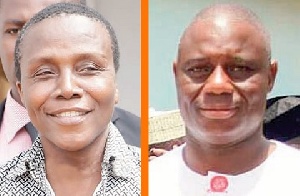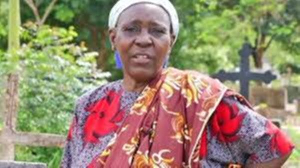We cannot know how society protects its weakest and vulnerable, those at the bottom of society from deprivation until a catastrophe such as COVID-19, the ‘unseeable, undead, unliving blob’, to use the words of Arundhati Roy, is unleashed on us.
Ghana has a sub-optimal social protection system, its inadequacy due to our informal and poor information system. COVID-19 has amplified these weaknesses, unleashing a swath of sufferings, turning modern prophets on their head.
Around the world, governments aiming at the greater good are encouraging citizens to stay at home, away from daily face-to-face commerce and interactions. With potential massive job losses and loss of income, many people face challenges in buying food, paying bills, rent, and for some, maintaining any accommodations at all.
Importance of Social Protection
Many governments have introduced social protection measures to mitigate income losses and related social hardships. The methods and effectiveness of these mechanisms have varied from country to country. Canada, Norway and Sweden— countries with generally strong welfare systems and social market models— seem relatively prepared to activate the delivery of targeted assistance. Such assistance, even if not to the intended or ideal scale, includes food sharing, cash payments and unemployment benefits. Delaying tax filing and eviction moratoriums are efforts which have indirect cash relief impacts.
The government of Ghana has speedily and admirably rolled out a number of mitigating mechanisms, including but not limited to three months of free water, free electricity for extremely poor households, and a 50 per cent subsidy to all other residential and commercial (non-life line) customers.
Food sharing through government agencies, non-governmental organisations and praiseworthy patriotic individuals has become an additional instrument for the delivery of much needed relief.
From the Structural Adjustment Programme to Poverty Reduction Strategy, Ghana has always had some form of social protection programmes as an integral part of social mitigation and poverty alleviation measures. The COVID-19 pandemic, however, and the options regarding how to deliver assistance have raised questions about the reach and effectiveness of our social safety nets.
Nowhere is this most evident than in the question of how to reach out to the Kayaye. These female head porters have come to personify the weakest in society — women, unemployed youth, day labourers, and the homeless. We know them from the streets, markets and lorry parks. They eke out their daily living, however meagre, without aggression and with a fair measure of pride in their daily efforts.
COVID-19 is challenging our agency, social values around equity and the efficacy of our social protection system. Our well-intended food sharing programmes have revealed a ‘new poor’ born out of the lockdown. But the food lines have also attracted the pre-COVID-19 poor, the urban poor, deprived and the vulnerable.
Public Choices & Our Value Systems
The reach and depth of a nation’s social safety nets reflect the ideology of the society and its value systems vis-à-vis poverty, inequalities, fairness in income distribution, and protections of the most vulnerable, including children and the elderly.
Egalitarian societies put a high premium on all of these metrics. Societies that have an endowment view of the world: each according to his or her talents, pay less heed to these metrics. At best they seek measures to minimize the suffering of the deprived and the less able in society. Attempts by countries to provide safety nets reveal their value systems and the fundamental characteristics of those societies.
The Appeal of Direct Cash Transfers
Globally, direct cash transfer is the most appealing way to deliver social safety nets. It is direct and the spending effects can be immediate. Togo has announced cash transfer scheme that is expected to offer women the highest possible payouts because women are more directly involved in nurturing households.
Direct cash transfers only work well in environments with well-established social transfer systems that use some objective selection mechanism.
The greatest challenge facing us in the midst of this COVID-19 crisis is in identifying the deserving individuals and households, and efficiently delivering the needed transfers to them with minimum risk of opportunistic behaviour. Improving access to safe water, fumigation of markets, subsidized electricity and food distribution are the visible, second-best public choices in our circumstances, even if some measures may be subject to abuses.
Can We Do Better?
The most notable of cash transfer systems in the country is the Livelihood Empowerment Against Poverty (LEAP) programme. Launched in 2008, the original target groups for LEAP are:
• Subsistence farmers and fisher folk
• The extremely poor above 65 years
• Care givers of orphan and vulnerable children
• Caregivers of incapacitated /extremely poor people Living With HIV/AIDS (PLWHAs)
• Pregnant women and lactating mothers with HIV/AIDS.
Its unconditional transfers are for the disabled and elderly over 65 years. The conditional grants are for households with orphans and vulnerable children.
The current scope of LEAP does not cover ‘the new poor’ who suffer loss of livelihood earning opportunities as a result of lockdowns or social distancing.
Without any objective identification, critics point out that even the current LEAP programme suffers from opportunistic selection. This means that despite recent government commitment to extend the programme’s reach by increasing funding from GH¢ 80 million in 2016 to GH¢223 million in 2019, the cash or the full amounts may not go to those identified as in need. There is a reported leakage of benefits to non-deserving individuals or households, some of whom may turn up in ‘un-targeted’ food distribution queues.
Looking Into The Future
Surely, our thinking about social safety nets needs to be broader and this broadening may not require great bundles of money.
We need an extended LEAP programme with employment-related criteria, something akin to the social grants for subsistence farmers and fisherfolks. Beneficiaries must have held a job or performed some income-earning activities for at least 48 weeks in the space of two years and shall be eligible for social assistance for no more than eight to 12 weeks for every two years. Beneficiaries must have a tax identification number (TIN) in a certain age bracket be a registered member of an association or group recognized and registered by the local government.
In the midst of the COVID-19 pandemic, I have wondered if the Ghana Card, the Digital Address System, Interoperability of the Payment System and the Ghana.gov platform would have made a difference to our ability to identify, target and deliver help to those most in need.
My guess is that these technological innovations would have provided foundational first steps and surely would have made a difference in facilitating some form of cash transfers.
The pandemic has presented a public policy opportunity for both government and citizens to effectively collaborate in building a highly formalized economy with good information and a strong digital base.
Post COVID-19, we must accelerate the completion of the Ghana Card registration. Digital addressing system should be mandatory, subject to fines for non-compliant residences after some initial grace period. The name and residential address of every Ghanaian must be known for social and governance purposes.
Let us also encourage those in the informal sector who derive income on a day-to-day basis, for example street vendors, market sellers, transportation workers to register with their assemblies and their trade or occupational associations again to facilitate ease of access to public services. This registration will provide opportunity for potential links to the extended LEAP and enrolment to NHIS.
Let us seize the moment to re-evaluate and reshape our social protection systems and build a comprehensive database of citizens from the matrix of Ghana Card, the Digital Address System, the National Health Insurance System (NHIS) and Social Security System. Linked to the Birth & Death Registry, this will enable the government to construct a robust database of citizens and their socio-economic profile.
Writing about it today is— one hopes— part of the process of re-thinking and re-shaping our social safety nets to make them better in the near future. And that will be a positive outcome from our COVID-19 experience for the public good.
The writer is a retired University Professor and is now the secretary/member of Ghana’s Economic Management Team (EMT). The views expressed here are the author’s and do not reflect the position of the EMT.
E-mail: jtuffour@gmail.com
Blog: Oframsolutions.wordpress.com
Opinions of Friday, 24 April 2020
Columnist: Joe Amoako-Tuffour



















